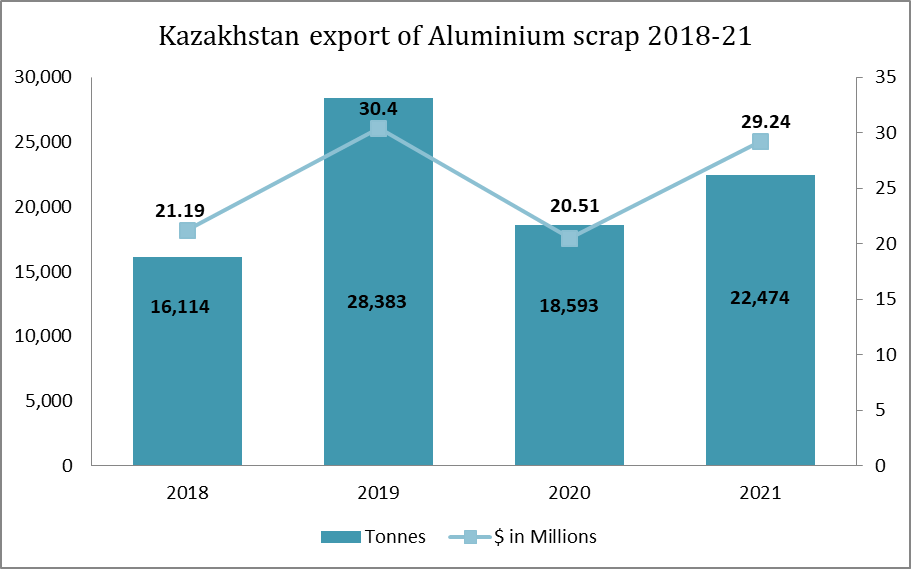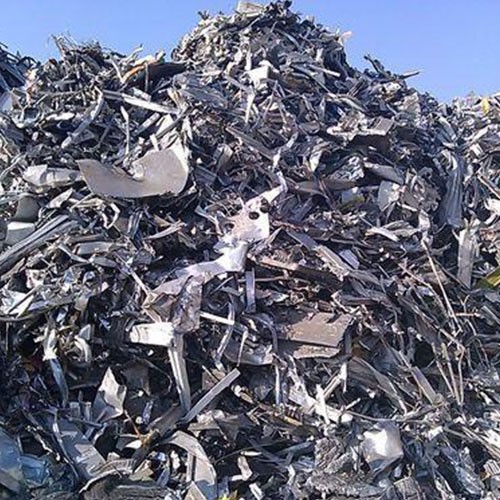

In October 2020, the Government of Kazakhstan has published a draft which mandated to stress the country's ban on scrap metal exports by truck. The barring of exports comprised of used and exhausted pipes, rails, railway elements and rolling stock, but excludes alloyed and resistant steel scrap. However, in October 2018, the measure was enacted to prohibit illegal scrap exports for approx. 500,000 tonnes per year at the time, with a consequential amount of this heading to Russia. It has had no impact on documented shipments by rail, as Kazakhstan and Russian are both members of the Eurasian Economic Union (EEU) and the Eurasian Customs Union. In May 2020, Kazakhstan imposed a ban on scrap exports by rail without any formal announcement, bestowing to a scrap shortage in Russia and supporting Russian domestic ferrous scrap prices.

Notwithstanding, the Central Asian nation Kazakhstan exported 63,090 tonnes of aluminium scraps during 2018-20 and the revenue generated from the export was counted to $72.10 million.
Kazakhstan’s export of aluminium scrap in 2018 was recorded with 16,114 tonnes and the earnings accounted was $21.19 million, whereas, in 2019, the export saw 76.13% growth, as the export volume rose to28,383 tonnes and the earnings also escalated to $30.40 million.

In 2020, the export of aluminium scrap from Kazakhstan was registered at 18,593 tonnes, which indicated a downfall of 34.49% and the earnings also dipped to $20.51 million.
Kazakhstan’s aluminium scrap export for 2021 is estimated with an upswing of 20.73%, as the export is predicted volume to grow and remain at 22,474 tonnes and the earnings to stand at $29.24 million.
The major trading destinations for Kazakhstan’s export of aluminium scrap are Kyrgyzstan, Russia, etc.
Responses








